Search Images
Browse Content (p. 1049)
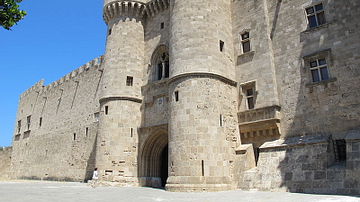
Image
Main Entrance, Palace of the Masters, Rhodes
The main entrance to the Palace of the Masters of the Knights Hospitaller or Knights of Rhodes. 14th century CE.
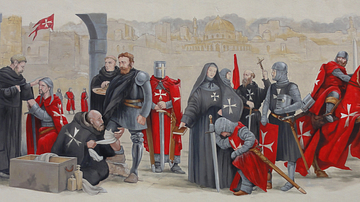
Image
Knights Hospitaller
An illustration by Ralph Hammann showing members of the medieval military order the Knights Hospitaller. Soultz commandery, France.

Image
Knights Hospitaller
An illustration of a priest and knight of the military order the Knights Hospitaller. 14th-15th century CE. (From a work in the Sacra Infermeria Museum, Valletta)
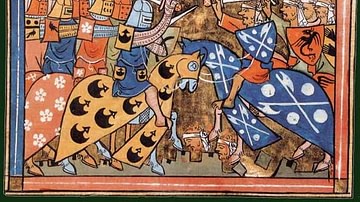
Image
Second Crusade Battle Scene
A battle scene of the Second Crusade (1147-1149 CE). From a 14th century CE illustrated manuscript of William of Tyre's history of the Crusade. (French National Library, Paris)
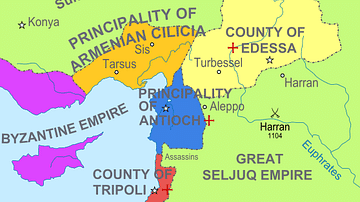
Image
The Near East in 1135 CE
This map of the Near East in 1135 CE shows four Crusader States (marked with red crosses) in relation to other powerful kingdoms in the period between the first and second crusades.
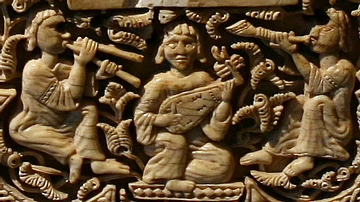
Image
Medallion Pamplona Casket
Medallion of the Pamplona casket that shows a scene with an orchestra (11th century CE). Museo de Navarra, Pamplona (Spain).
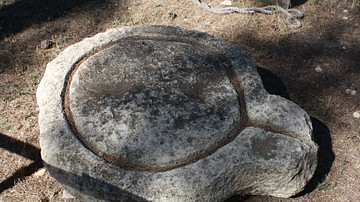
Image
Olive Press Stone
A stone from an olive press used to collect the oil from the pressed olives and pour it into a waiting receptacle. 6th-2nd century BCE, Saint Blaise, France.
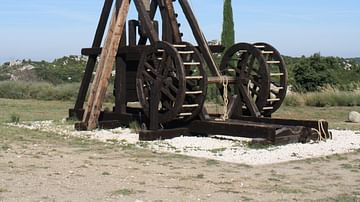
Image
Medieval Trebuchet
A reconstruction of a medieval catapult or trebuchet of the 12th-14th century CE. Chateau of Les Baux-de-Provence, France. The trebuchet used a counterweight of stones to spring a single arm and propel a stone or incendiary over a distance...
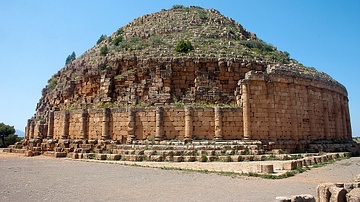
Image
Royal Mausoleum of Mauretania
The Royal Mausoleum of Mauretania in Tipaza, Algeria was built in 3 BCE by Juba II of Numidia (c. 50 BCE – c. 25 CE) and his wife Cleopatra Selene II (40 BCE – c. 5 BCE). This tomb may have been the final resting place of Juba II and Cleopatra...
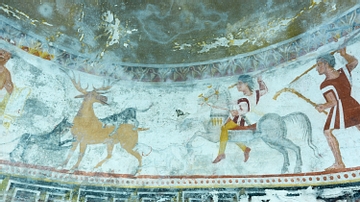
Image
Painted Burial Chamber, Haskovo
A detail of a painted dromos and dome camera from a tumulus near Aleksandrovo village, Haskovo district, Bulgaria. The dromos has battle scenes while the burial chamber has a hunting scene, unfolded in a circle, and in the lower register...